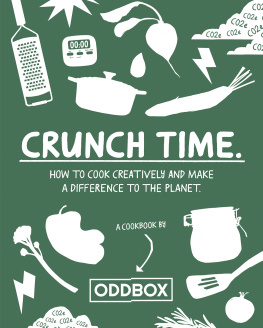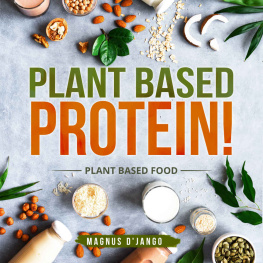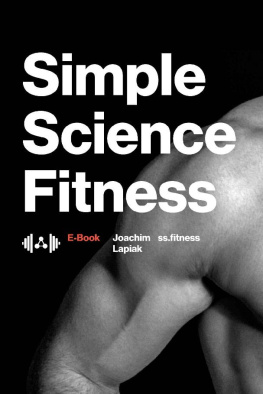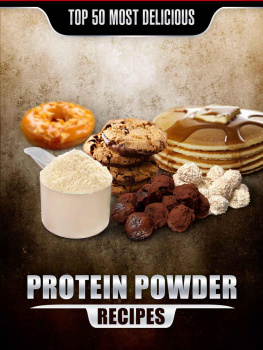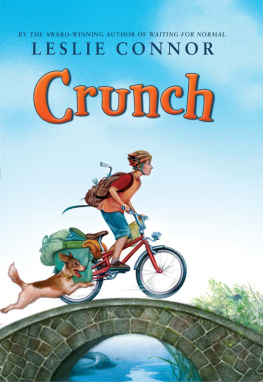Title Page
The Protein Crunch
Jason Drew and David Lorimer
Publisher Information
First published in South Africa in 2011
By Print Matters Planet
an imprint of publishing Print Matters (Pty) Ltd
www.printmatters.co.za
Digital edition converted and published by
Andrews UK Limited 2011
www.andrewsuk.com
Copyright Text 2011 Jason Drew and David Lorimer
The moral right of the authors has been asserted.
All rights reserved.
No part of this publication may be reproduced, stored in a retrieval system, or transmitted, in any form or by any means, without the prior permission in writing of the publishers or author, nor be otherwise circulated in any form of binding or cover other than that in which it is published and without a similar condition, including this condition, being imposed on the subsequent purchaser.
Editorial Panel
Melissa Siebert and Robin Stuart-Clark
Cover Design
Katrin Hannusch and Kirsty Macfarlane
Book Design & Production
Stuart-Clark & Associates cc and Kirsty Macfarlane, Cape Town
www.theproteincrunch.com
Dedication
For our children
Jack and Charlie Drew, Charlotte and George Lorimer
Acknowledgements
This work brings together the detailed research of many international scientists and environmentalists who are too numerous to name and thank here individually. Without their inspiration and commitment to the environment the story of The Protein Crunch would not have been written.
We also acknowledge the very real suffering of the near one billion people who wake up hungry each day as a result of the environmental damage we have caused and the food system we have created.
Jason Drew and
David Lorimer May 2011
Introduction
The credit crunch has shaken our global economy, but it will recover. The Protein Crunch is far more serious and, if we open our eyes, it is unfolding right in front of us. Our food protein comes from three sources: our water, land and seas. All of these natural resources are under increasing pressure from our burgeoning population: when more demand meets less supply, we arrive at The Protein Crunch.
Every day, newspapers cover some element of this looming issue: mine water pollution in Johannesburg, Chinese land purchases in the Congo, a single tuna sold for $380,000 in Tokyo, floods in Pakistan and the food price riots that ignited North Africa. Few of us understand the causes of these crises and events, nor how they are all connected. This book is the story of the crisis we face, from the viewpoint of an unashamed capitalist and entrepreneur. My belief is it will make you think; my hope is that it will make you act.
I have spent the last 25 years of my life fighting and winning in the game of business from running other peoples multinational companies to creating and then selling my own. Two heart attacks later, I realised that the only game worth playing was that of living. I changed the struggles of the boardroom for a passion for life and moved to live full time on my farm in South Africas beautiful Tulbagh Valley.
I decided to walk myself fit. It turned out to be a journey of understanding of both the environment and myself. As the seasons changed I saw the streams dry up in summer and then flood in winter. Where we had felled trees, I saw soil erosion that turned the rivers muddy as they carried away the soil. This lit in me a passion and a concern for the environment: I began to read everything I could find on our water, land and seas.
I then travelled the world to see for myself the damage man is wreaking on these three vital eco-systems. I began to understand the extraordinary and unexpected connections between the many things I saw: from the teeming masses of Chinas cities to the fertile plains of the Indus Valley and the dry rivers of Americas Mid-West to name but a few. I began to realise the complexity of Nature and how the environment has shaped our past and will determine our future. During my travels over the last three years, two stories made an impact on me.
The first is a story of how wolves brought back the aspen trees to Americas Yellowstone National Park. The aspen trees have always been a feature of its landscape, but the established trees were ageing and no new trees were replacing them. The last wolf in the park was shot in the 1920s, since when the elk population expanded rapidly and grazed on the young aspen saplings before they could grow and mature. Since the re-introduction of the wolves in 1995, the elk population has been reduced and their natural grazing habits have returned. The elk, frightened of the wolf packs, no longer graze at the river edges or in woods but on the open plains. Young sapling aspen trees now survive and as they mature the woodlands are naturally re-establishing themselves.
The second story is of a small island in the Bering Sea between Alaska and Russia. In 1944, a coastguard introduced 29 reindeer to the remote St Matthew Island as a reserve source of food for the men working there. The base was closed at the end of the Second World War, and all the men left the island. Just 13 years later, as they grazed on the abundant and nutritious lichen that covered much of the island, the reindeer population had reached 1,350. Without any natural predators on the island, the population exploded over the next six years, so that by 1963 there were 6,000 reindeer. But then disaster struck: the deer had eaten all the lichen, and just three years later there were only 42 left 41 females, one sickly male and no fawns. This is a cautionary tale of what can happen when a species multiplies exponentially. In destroying their habitat, the reindeer destroyed themselves.
Just a 100 years ago it would have been inconceivable to think that the human impact on the environment might become so great as to threaten the Earth and our own survival. We now stand at a turning point in our history and in the history of the Earth. Mankind has acquired the scale and the power to wreck the biosphere on which we depend yet also the knowledge to fix it. Throughout history, humans have cleared land or fished out rivers, and after exhausting other natural resources, moved on. Now with nearly seven billion people on the planet we are destroying environmental systems everywhere and simultaneously. There is nowhere else for us to go.
It is increasingly apparent that our capitalist global food system is not functioning effectively. With nearly one billion people hungry and another billion people overweight or obese, something clearly isnt working. Having watched the recent credit crunch unfold, I saw many similarities in the way our environmental and food production systems were and are being stretched to breaking point. With food demand outstripping supply, food prices will inevitably increase.
Food price inflation brings with it civil unrest and political turmoil, as we have witnessed in the first months of 2011. Social order has already started to collapse in many failed states like Sudan and Afghanistan. In our interconnected global world, state failure may become contagious as environmental refugees migrate to survive. Our civilisation is on the brink of disaster.
I decided to write the story of what I had seen with a family friend, environmentalist and author David Lorimer. The Protein Crunch explains our impact on the earths natural systems and its resources on which we all depend. As some of these ecosystems become less productive or fail altogether, the speed and severity of The Protein Crunch will accelerate. The way we respond to these environmental challenges is a matter of life and death, first for the poorest then for the rest of us, not to mention future generations. Many civilisations have collapsed before ours, but will we be the first to foresee our demise and prevent it?
Next page

